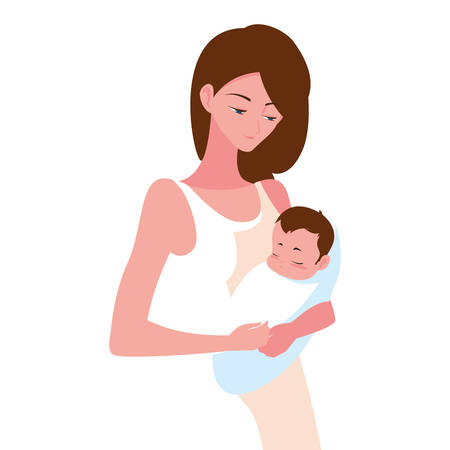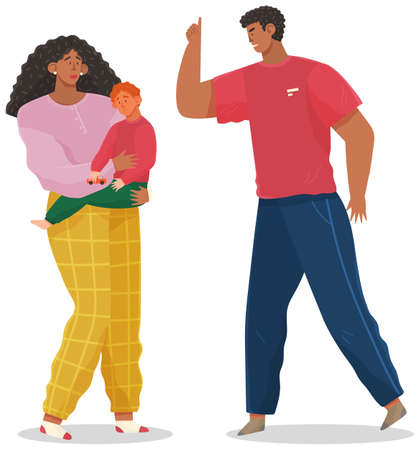Introduction to British Family Traditions
The United Kingdom is renowned for its rich tapestry of family traditions, each woven through centuries of history and shaped by the diverse communities that call these islands home. From afternoon tea in a cosy living room to festive celebrations like Christmas crackers and Bonfire Night, British family customs are not only cherished rituals but also a reflection of evolving values and cultural integration. Understanding these traditions provides insight into how families across England, Scotland, Wales, and Northern Ireland connect generations, foster a sense of belonging, and adapt to the changing landscape of modern UK life. Whether it is passing down Sunday roast recipes or gathering for annual community events, these customs serve as both anchors to heritage and bridges to new cultural influences. The following table offers a brief overview of some quintessential British family traditions, their origins, and their ongoing impact on contemporary family dynamics:
| Tradition | Historical Roots | Influence on Modern Life |
|---|---|---|
| Sunday Roast | Originated in the 15th century as a post-church meal | Remains a weekly family gathering promoting unity |
| Afternoon Tea | Popularised by the Duchess of Bedford in the 1840s | A symbol of hospitality and bonding time, often adapted to suit diverse tastes |
| Christmas Crackers | Invented by Tom Smith in Victorian England | An integral part of holiday celebrations, fostering shared joy and laughter |
| Bonfire Night (Guy Fawkes Night) | Commemorates the failed Gunpowder Plot of 1605 | Encourages community spirit through public gatherings and fireworks displays |
As we delve deeper into how British families seamlessly blend these longstanding traditions with influences from other cultures, we will discover the enduring importance of balancing heritage with adaptation in nurturing inclusive family environments.
2. Understanding Cultural Differences Within Families
In the context of British society, families increasingly reflect a rich tapestry of cultural backgrounds and traditions. Multicultural British families often encounter differences in language, religious practices, dietary habits, family roles, and celebration of holidays. These differences can be both enriching and challenging as family members strive to merge their unique heritages while building a harmonious home environment.
Common Cultural Differences in British Families
| Aspect | Potential Differences |
|---|---|
| Language & Communication | Varied native languages, accents, or preferred expressions may lead to misunderstandings or the need for translation. |
| Religious Observances | Diverse faiths may influence daily routines, dietary restrictions (e.g., halal, kosher), and participation in religious events. |
| Family Roles | Expectations about parenting styles, gender roles, and respect for elders can differ across cultures. |
| Celebrations & Traditions | Differing views on which holidays are celebrated and how they are observed (e.g., Christmas, Eid, Diwali). |
The Value of Cultural Sensitivity and Mutual Respect
Cultural sensitivity involves recognising and valuing these differences without judgment. It is essential for fostering an environment where every family member feels respected and understood. Practising mutual respect means acknowledging each person’s heritage and finding ways to blend customs so that everyone feels included. This approach not only strengthens familial bonds but also sets a positive example for children growing up in multicultural Britain.
Practical Tips for Embracing Diversity at Home
- Encourage open discussions about cultural expectations and values.
- Create inclusive family rituals that celebrate elements from each culture.
- Respect dietary preferences by offering meal options suitable for all family members.
Conclusion
By appreciating and accommodating cultural differences with sensitivity and respect, British families can seamlessly blend diverse traditions into their everyday lives, creating a nurturing environment rooted in shared values and mutual understanding.

3. Nurturing Shared Values and Customs
When blending British family traditions with those from other cultures, it is essential to identify the key values that each background brings to the family dynamic. Creating a harmonious home environment begins with recognising what matters most—such as respect, kindness, honesty, or community—and ensuring these are woven into everyday life. To achieve this, families can hold open discussions where every member shares their cultural values and customs, fostering mutual understanding and appreciation.
Identifying Core Values from Each Culture
Start by listing down important values and customs from both British and your partner’s cultural heritage. Use the table below as an example framework for this process:
| British Traditions | Other Cultural Traditions | Shared Family Value |
|---|---|---|
| Sunday roast dinners | Family lunch on religious festivals | Spending quality time together over meals |
| Punctuality and politeness | Elders’ respect rituals | Respect across generations |
| Remembrance Day observance | Cultural heritage celebrations | Honouring history and ancestry |
| Christmas gift-giving | Cultural festival gift exchanges | Generosity and sharing |
Celebrating Values Through Daily Life
Once these values have been identified, actively incorporate them into daily routines. For instance, set aside time each week for family gatherings where everyone can share stories or customs from their own background. Encourage children to ask questions about each parent’s upbringing and invite extended family to participate in shared celebrations—whether it’s Bonfire Night or Diwali.
Creating a Supportive Environment at Home
A nurturing environment is one where all members feel valued for their unique perspectives. Display symbols of both cultures in your home, such as artwork or traditional ornaments. Establish household rules that reflect your blended values—for example, taking turns leading prayers or moments of reflection before meals, or rotating who chooses music or activities during family time.
Guidance for British Families Embracing Multiculturalism
If you are new to incorporating another culture into your British household, seek out local community groups or parenting classes that celebrate diversity. Attending multicultural events in your area—like food festivals or language workshops—can help reinforce the importance of shared values while also introducing your children to the richness of both heritages.
4. Practical Ways to Merge Traditions
Blending British family traditions with those from other cultures can be a rewarding journey, creating a richer and more inclusive home environment. It’s important to approach this process thoughtfully so that every family member feels valued and connected. Here are some practical suggestions for harmonising everyday customs, holidays, and special family events:
Everyday Customs
Start by identifying daily routines that hold significance for each culture represented in your family. This might include meal times, greetings, or bedtime rituals. For example, you could combine the classic British tradition of afternoon tea with snacks from another cultural background, allowing everyone to enjoy familiar tastes while exploring new ones together.
Sample Blended Daily Routine
| Time | British Custom | Other Cultural Custom | Blended Family Activity |
|---|---|---|---|
| Morning | Cup of English breakfast tea | Traditional morning prayer/meditation | Family tea followed by shared quiet reflection time |
| Afternoon | Afternoon tea with scones | Light snack from other culture (e.g., fruit, dumplings) | Combined snack table featuring both cuisines |
| Evening | Bedsheet storytelling or reading aloud | Singing lullabies in native language | Storytime followed by multicultural lullabies |
Merging Holidays and Celebrations
Create new family traditions by integrating key elements from each culture’s major holidays. For example, you might celebrate Christmas with a traditional British roast but also include dishes or decorations meaningful to another heritage. When celebrating birthdays or milestones, invite extended family—both local and overseas—via video calls to ensure everyone feels part of the occasion.
Blended Holiday Example: Christmas & Diwali
| Aspect | British Tradition (Christmas) | Other Tradition (Diwali) | Blended Celebration Idea |
|---|---|---|---|
| Decorations | Tinsel, holly, Christmas tree | Diyas (oil lamps), rangoli patterns | Decorate with both fairy lights and colourful rangoli around the tree base |
| Food & Drink | Roast dinner, mince pies, mulled wine | Sweets (mithai), spiced snacks, chai tea | Mince pies alongside mithai and festive spiced teas on the dessert table |
| Activities | Presents under the tree, carol singing | Lighting lamps, exchanging sweets and gifts | Singing carols followed by lighting diyas and gift exchange for all faiths present |
Special Family Events: Ensuring Inclusion for All Members
Create opportunities for every family member to share something unique from their background during gatherings. Encourage children to take part in planning menus or choosing music that reflects their mixed heritage. Consider rotating hosts so everyone’s culture is represented over time. Open conversations about the meaning behind each tradition help build respect and understanding.
Nursing Perspective: Promoting Emotional Wellbeing Through Inclusion
Nurturing a sense of belonging benefits emotional wellbeing for both parents and children. By actively blending traditions and making space for open dialogue about values and practices, families foster resilience and mutual respect—a foundation that supports healthy relationships now and into future generations.
5. Communication Strategies for Multicultural Families
Effective communication is the cornerstone of building unity and understanding within multicultural British families. When blending diverse cultural backgrounds, it’s essential to foster an environment where every family member feels valued and heard. Open, honest dialogue not only strengthens relationships but also helps resolve potential misunderstandings that may arise from cultural differences.
Techniques for Open and Honest Communication
Successful multicultural families in the UK often utilise a range of strategies to ensure all voices are respected. These techniques can be applied daily to nurture trust and cooperation:
Technique |
Description |
Example in Practice |
|---|---|---|
Active Listening |
Giving full attention to the speaker, showing empathy, and clarifying any doubts. | During a family meeting, parents repeat back what their child has said about feeling left out during Diwali celebrations, ensuring they understand his perspective. |
Cultural Sensitivity |
Being aware of and respecting different customs, values, and communication styles. | A British mother learns key phrases in her partner’s language to show respect during family gatherings. |
Regular Family Meetings |
Setting aside time for open discussions about feelings, upcoming events, or concerns. | The family schedules Sunday afternoons for everyone to share updates and discuss holiday plans. |
Non-Verbal Cues Awareness |
Recognising body language or facial expressions that may differ across cultures. | Parents notice when their teenager withdraws from eye contact, realising this signifies discomfort rather than disrespect in his culture. |
Shared Decision-Making |
Encouraging input from all family members before making important choices. | The family votes on whether to celebrate Christmas at home or with extended relatives abroad. |
Nurturing Unity Through Storytelling and Shared Experiences
In addition to structured techniques, sharing stories from each culture can foster empathy and belonging. British families might create scrapbooks combining traditions—such as Guy Fawkes Night memories alongside tales of Lunar New Year celebrations. Through these shared experiences, children learn to value both heritage and unity.
The Role of Language in Building Bridges
If multiple languages are spoken at home, encouraging bilingualism or even simple greetings in each language honours every culture present. This not only aids communication but also instils pride in children for their multicultural background—a foundation for confident identity within modern British society.
6. Supporting Children in Multicultural Settings
As families blend British traditions with other cultural heritages, supporting children to develop a healthy, inclusive sense of identity becomes essential. Navigating multiple cultures can be enriching but also challenging for young minds. Parents play a crucial role in helping their children embrace the richness of multiculturalism while feeling confident and secure in who they are.
Advice for Parents: Nurturing Multicultural Identity
Creating a supportive environment at home is fundamental. Here are some practical strategies for parents:
| Strategy | Description | British Context Example |
|---|---|---|
| Open Communication | Encourage discussions about both British and family heritage cultures. Answer questions honestly and age-appropriately. | Talk openly about celebrating both Bonfire Night and Diwali, explaining their meanings. |
| Cultural Participation | Engage children in festivals, foods, music, and stories from all cultures represented in your family. | Bake mince pies together at Christmas and also prepare traditional family dishes from another heritage. |
| Diverse Social Circles | Foster friendships with families from different backgrounds to broaden perspectives and reduce feelings of isolation. | Attend local community events or multicultural fairs in your area. |
| Representation at Home | Ensure books, toys, and media reflect diverse identities and experiences, including British and other cultures. | Select picture books that feature multicultural British families or watch British TV shows that celebrate diversity. |
| Pride in All Identities | Model pride in both British values and your familys unique traditions. Encourage children to share these confidently with others. | Help your child explain what makes their blended background special during school show and tell. |
The Role of Schools and Community Support
In the UK, schools play an integral part in supporting multicultural identities through inclusive curriculums and diverse celebrations. Parents can collaborate with teachers to ensure their childs heritage is acknowledged and respected. Joining local groups—such as parent meet-ups or cultural societies—provides valuable support networks for both parents and children as they grow into well-rounded individuals.
Building Resilience and Belonging
Navigating more than one culture may sometimes lead to questions of belonging. Reassure your child that being part of two or more cultures is a strength, not a limitation. By fostering open dialogue, participating in shared traditions, and celebrating differences, you help your child build resilience, confidence, and a true sense of belonging within British society—and beyond.
7. Seeking Community Support and Resources
Navigating the blend of British family traditions with other cultural backgrounds can be both enriching and challenging. Fortunately, the UK is home to a wealth of organisations, community groups, and resources dedicated to supporting multicultural families as they establish their unique blend of values and customs. Engaging with these resources not only fosters a sense of belonging but also offers practical guidance and emotional support during your family’s journey.
UK-Specific Organisations for Multicultural Families
| Organisation | Focus Area | Contact/Website |
|---|---|---|
| Multicultural Family Base (MCFB) | Family support services, counselling, parenting workshops | mcfb.org.uk |
| The Refugee Council | Support for refugee and asylum-seeking families in the UK | refugeecouncil.org.uk |
| Migrant Help UK | Advice and support for migrants, including family integration | migranthelpuk.org |
| Barnardo’s | Services for children and families from diverse backgrounds | barnardos.org.uk |
Local Community Groups and Activities
Across the UK, many towns and cities host local multicultural centres, language exchange groups, and parent networks designed to celebrate diversity. Participating in these groups can help families find friends who share similar experiences, explore British traditions together, and learn new ways to incorporate customs from multiple cultures into everyday life.
Examples of Local Support:
- Community centres offering multicultural playgroups or family events
- Faith-based groups welcoming families from different backgrounds
- Council-run cultural festivals encouraging community participation
Online Resources for Blended Families
The digital landscape provides further avenues for support—forums, social media groups, and online advice platforms connect families across the UK. These spaces allow parents to ask questions, share stories, and access culturally sensitive information about raising children in a mixed-heritage household.
Useful Online Platforms:
- Mumsnet Multicultural Families Forum: Peer advice and discussion threads
- The Mix: Resources for young people navigating identity issues in blended families (themix.org.uk)
By actively seeking out these community resources, multicultural families in the UK can enjoy a supportive environment where traditions are respected and new values are embraced. This network not only aids in overcoming challenges but also enriches the journey of blending British family traditions with those from around the world.


